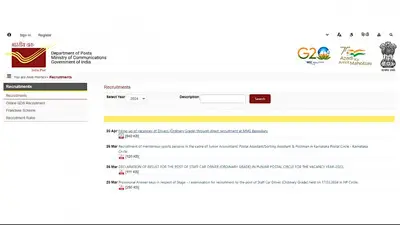Recommended Stories
New Delhi: The Government will not prescribe a fixed time-frame for deciding mercy petition of convicts sentenced to death, Home Minister P Chidambaram told Rajya Sabha on Wednesday.
"We see no reason for making changes in the procedure," he said.
The minister said there was no time-limit prescribed for the President to decide on mercy petitions.
"This is an exercise of power by the highest constitutional functionary, that is the President of India. It will be inappropriate to prescribe a time-line (to the President)," he said.
Chidambaram said the approach he has adopted on deciding mercy petitions since taking over in 2008 is yielding results and therefore he sees "no reason for fixing time-lines."
Ruling party members and those from the Left reacted sharply when Murli Manohar Joshi (Shiv Sena) said the delay in deciding the mercy petition of Afzal Guru, sentenced to death in the Parliament attack case, was because he belonged to the minority community.
Condemning the remark, Chidambaram said the insinuation made was "unparliamentary and uncalled for."
The Home Minister said he was referring to the President the mercy petitions in order of the date of the convicts being sentenced and appeals received.
So far, 13 cases have been referred and decision obtained in seven, he said adding the case of three persons sentenced to death in the assassination of former Prime Minister Rajiv Gandhi was higher in order than the Afzal Guru case.
Besides, two other terrorist cases are higher in the order than the Afzal Guru case, he said.
"I am not looking at religion, caste or race of the convicts" in sending the mercy petitions to the President for decision, he said, emphasising that a particular order was being followed "without fear or favour and without prejudice".
Admitting that the Supreme Court has ruled that undue delay can become ground of commutation of sentence, he said he cannot comment on the time taken by the President in deciding the mercy petitions.
"The power under Article 72 of the Constitution does not contain any limitation as to the time in which the power conferred shall be exercised," he said.
During the last three decades, the shortest time taken in disposal of the mercy petition was 18 days (September 1992) and the longest time taken was 11 years, 11 months and 18 days (February 2011).
In the Afzal Guru case, Chidambaram said Tabasum Afzal, wife of the convict, petitioned the President on October 3, 2006 for commutation of death sentence. Delhi government was asked to give comments.
Comments of the Delhi government were furnished by the Lieutenant Governor of Delhi in June 2010 and the "same is under examination of (Home) ministry for submission to the President," he added.












